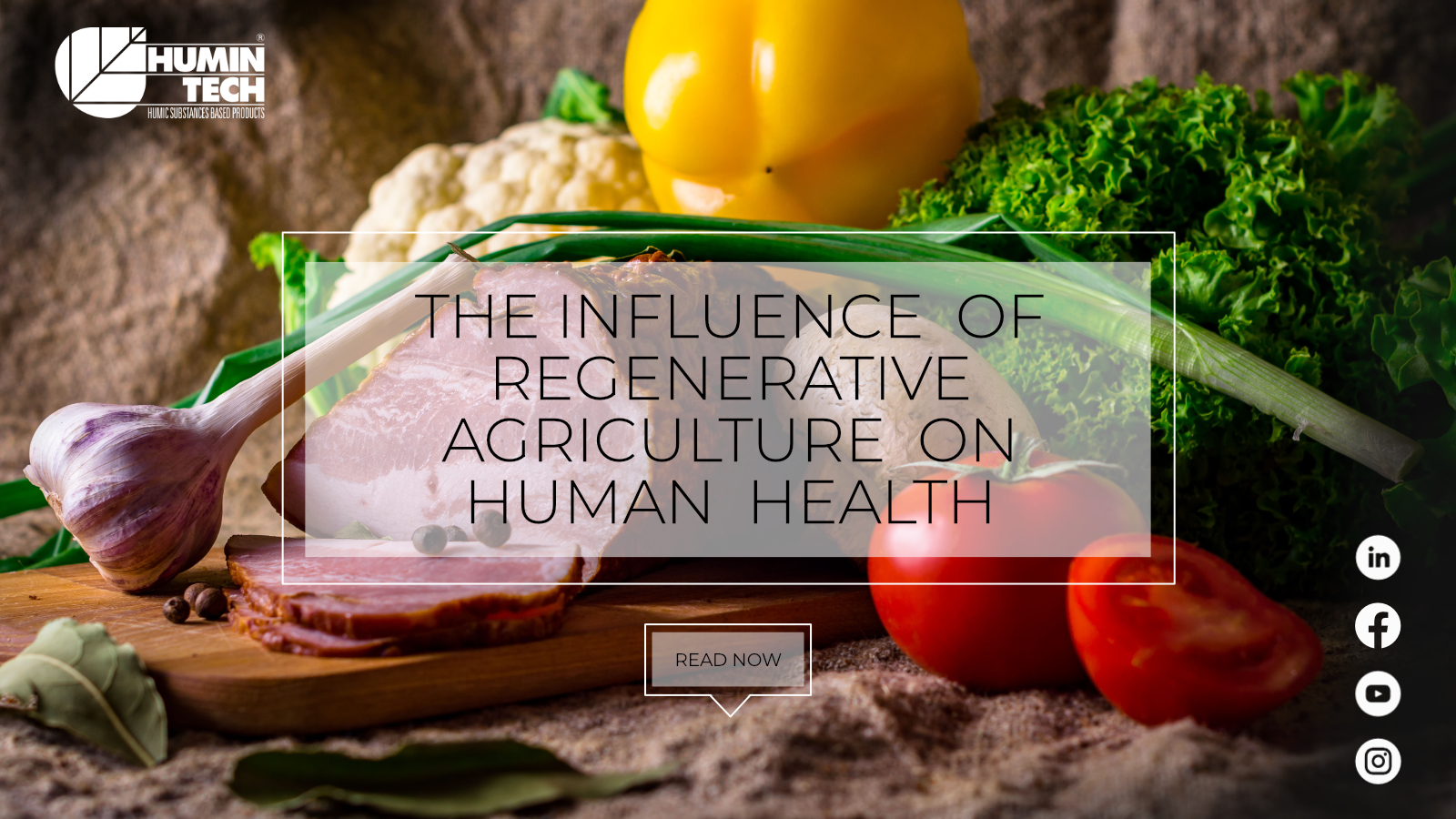The Impact of Regenerative Agriculture on Human Health

The Impact of Regenerative Agriculture on Human Health
The microbiota of our environment have a direct influence on the human metabolic system. At present, we are witnessing an enormous loss of biodiversity, not only in animal species but also in soil, crops and the human microbiome. Modern urban life contributes to this loss, starting with excessive hygiene, little ground contact in childhood, antibiotics, and highly processed and low-fibre food from industrial agriculture.
Humic substances for the immune system
The importance of humic substances goes beyond soil health; they also affect human health and nutrition. Regenerative farms with a higher content of humic substances in the soil produce plants with a higher content of vitamins, minerals, antioxidants and secondary plant substances. But they also contain a greater abundance and variety of useful microorganisms. The consumption of these microorganisms can have a positive effect on the intestinal microbiome, which in turn is the starting point of human health - not only the nutrient intake and general well-being depend on it, but also the functioning of the immune system.
Part 1: Plant-based diet
The use of humic substances in agricultural practice offers a highly concentrated source of organic substances that develop their positive effects in both leaf and soil application. As a foliar application, humic substances improve the plants' defenses, so the use of pesticides can be reduced. The presence of humic substances in the soil leads to the formation of clay-humus complexes and promotes the production of glomaline, a sticky substance excreted by mycorrhizal fungi. Glomalin helps improve soil structure by creating pore spaces for air and water movement. This soil system allows for better rooting, nutrient absorption and water infiltration. In addition, humic substances allow high water storage capacity, reducing the risk of drought stress and improving the resistance of plants to dry conditions.
Maintaining the microbiome
If organic material such as compost, mulch and manure is selected from sources rich in useful microorganisms, a favorable microbiome is also produced on the culture. A diverse crop rotation helps to break down pest and disease cycles and reduce the use of pesticides.
Part 2: Animal products
Livestock kept in the pasture not only lives a better, more natural life, making it a more ethical choice, but it also eats a wide variety of food and moves freely in the fresh air in sunlight and rain, promoting its metabolism and leading to healthier products. If holistic pasture management is added, that is, the controlled rotation over different pastures, which can regenerate in between, the positive effects multiply not only for animal health but also for soil life and biodiversity.
You are what you eat
Both meat and dairy products from regenerative agriculture contain phytochemicals, which are powerful antioxidants that do not occur in conventional products. The more varied the grazing of the animals, the higher the content of various antioxidants and the lower the content of low-density lipoprotein, also known as the "bad" cholesterol.
This means that the health of the soil not only has a direct impact on how many nutrients are available to the plants and thus to humans, but also on what kind of (useful or harmful) microbiome is passed on to the consumer; In addition, research shows that the same product from different cultivation methods even has different compositions (see below) and can therefore have significant effects on human health.
From unhealthy to health-promoting
Regenerative beef contains 300 % omega-3 fatty acids compared to conventionally farmed beef and even more than six times as much alpha-linolenic acid (ALA), an essential omega-3 fatty acid that humans have to absorb through food. Regenerative pork has been shown to contain 9 times more omega-3 fatty acids, including 11 times more ALA than the control group. At the same time, omega-6 fatty acids have been reduced by 200–300 %, making this meat a much healthier option.
Whether potatoes, apples or pork – the end product may look the same, but the differences are big. An optimal soil ecology is a long-term investment that pays off over generations.
More information about our soil improvers can be found at: www.humintech.com/agriculture/products/overview

